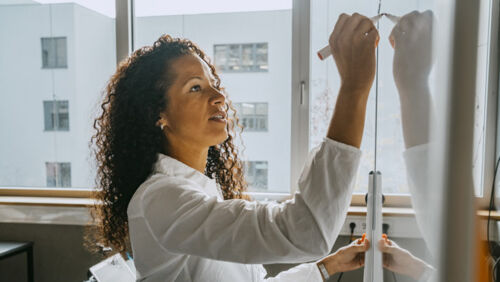Glyn Davis on why life is a game of chance when it comes to fortunes
Birth is a throw of the dice. The consequences last a lifetime. Glyn Davis, CEO of the Paul Ramsay Foundation, former vice-chancellor of the University of Melbourne, Distinguished Professor of political science at the Australian National University and Professor at the Blavatnik School of Government, Oxford, is passionate about encouraging those who are fortunate to help those who are disadvantaged.
Davis teaches and researches in the field of public policy and his public sector roles include terms as the Director-General of the Department of Premier and Cabinet in Queensland and Foundation Chair of the Australia and New Zealand School of Government.
His recent book On Life's Lottery asks the question, if life is a game of chance, what responsibility do those who are given a head start have to look after the less fortunate?
What was your first job?
Like many school students, a succession of casual roles - delivering prescriptions for the local pharmacy, working on Saturdays and school holidays at Roselands shopping centre, later playing cover songs in pub bands while at university. My first full-time job was as a radio journalist at ABC in Canberra before an academic appointment at Griffith University.
What's the best money advice you've received?
There are many, many more things more important. Don't organise your life around money.
What's the best investment decision you've made?
To have, and be part of, a family.
What's the worst investment decision you've made?
While I have been responsible for a number of large budgets and endowments during my career, I have always left investing to the experts.
What is your favourite thing to splurge on?
Books and sheet music - vices and virtues all at once.
If you had $10,000 where would you invest it?
In my children.
What would you do if you only had $50 left in the bank?
Alas, something I remember too often during years as a graduate student on a very modest Commonwealth scholarship. My only solution at the time was just keep working on the thesis and try not to get stressed. It seemed to work.
Do you intend to leave an inheritance?
More than 80% of Australians donate to charity every year, and many families use a private ancillary fund to structure their giving. My wife and I follow this approach, supporting each year a number of education and artistic organisations we value. Our children are involved closely with the PAF, and we have agreed on legacy bequests when we depart.
What have been your fortunate circumstances and when did you feel it became important to help those less fortunate?
Education is the most reliable off-ramp from poverty. I was fortunate in every way - with loving parents who supported my decision to study at university, though it was an unfamiliar world for them and me. Those tertiary qualifications gave me choices about how to live and to make a contribution. For me that opened up opportunities to be a university teacher, something I hugely enjoyed, to work at various times in public service and now to be part of the nation's largest philanthropic foundation.
How did your own university education help you get to where you are today?
The traditional virtue of an arts degree is in learning to think systematically, to research, and to write persuasively. Study also underlines attributes such as ability to plan lengthy projects, time management, and determination. There are, of course, many other ways to acquire such skills, but few are as enjoyable as mastering a subject you find fascinating.
Finish this sentence: money makes ...
... no sense unless used for a purpose larger than ourselves.
Win a copy of On Life's Lottery by Glyn Davis
Get stories like this in our newsletters.



